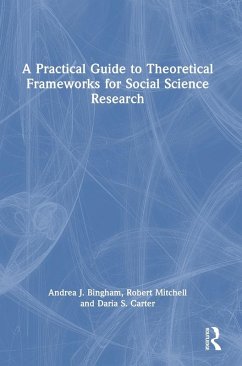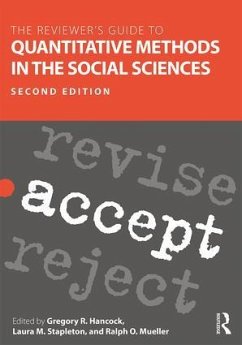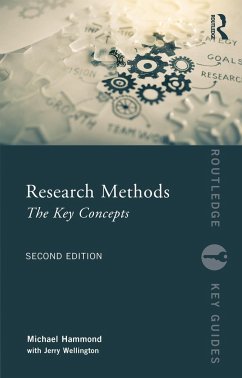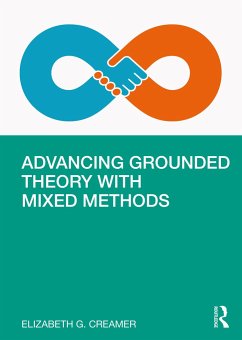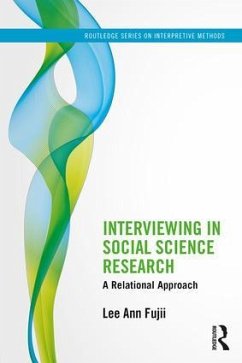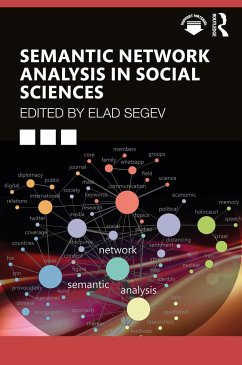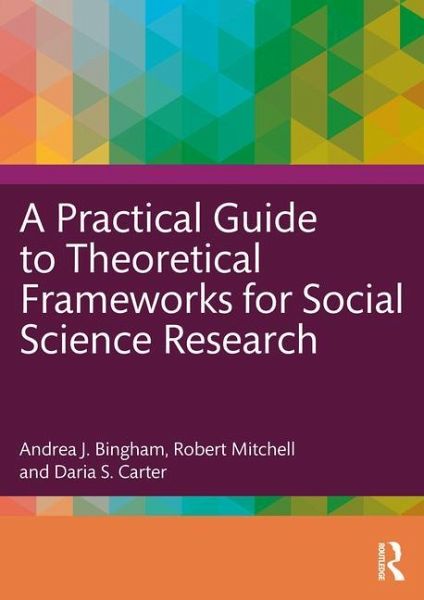
A Practical Guide to Theoretical Frameworks for Social Science Research
Versandkostenfrei!
Versandfertig in 6-10 Tagen
49,99 €
inkl. MwSt.
Weitere Ausgaben:

PAYBACK Punkte
25 °P sammeln!
This practical book offers a guide to finding, choosing, and applying theoretical frameworks to social sciences research, and provides researchers with the scaffolding needed to reflect on their philosophical orientations and better situate their work in the existing landscape of empirical and theoretical knowledge.Using a multifaceted approach, the book provides clear definitions, primary tenets, historical context, highlights of the challenges and contemporary discussion and, perhaps more importantly, concrete and successful examples of studies that have drawn on and incorporated each theore...
This practical book offers a guide to finding, choosing, and applying theoretical frameworks to social sciences research, and provides researchers with the scaffolding needed to reflect on their philosophical orientations and better situate their work in the existing landscape of empirical and theoretical knowledge.
Using a multifaceted approach, the book provides clear definitions, primary tenets, historical context, highlights of the challenges and contemporary discussion and, perhaps more importantly, concrete and successful examples of studies that have drawn on and incorporated each theoretical framework. The authors define and explain the connections among such concepts as ontology, epistemology, paradigm, theory, theoretical frameworks, conceptual frameworks, and research methodology; describe the process of finding and effectively using theoretical and conceptual frameworks in research; and offer brief overviews of particular theories within the following disciplines: sociology, psychology, education, leadership, public policy, political science, economics, organizational studies, and business. The book also has a dedicated chapter on critical theories, and for each theory, provides a definition, explores how the theory is useful for researchers, discusses the background and foundations, outlines key terms and concepts, presents examples of theoretical applications, and gives an overview of strengths and limitations.
This book offers a useful starting point for any researcher interested in better situating their work in existing conceptual and theoretical knowledge, but it will be especially useful for graduate students and early career researchers who are looking for clear definitions of complex terms and concepts, and for an introduction to useful theories across disciplines.
Using a multifaceted approach, the book provides clear definitions, primary tenets, historical context, highlights of the challenges and contemporary discussion and, perhaps more importantly, concrete and successful examples of studies that have drawn on and incorporated each theoretical framework. The authors define and explain the connections among such concepts as ontology, epistemology, paradigm, theory, theoretical frameworks, conceptual frameworks, and research methodology; describe the process of finding and effectively using theoretical and conceptual frameworks in research; and offer brief overviews of particular theories within the following disciplines: sociology, psychology, education, leadership, public policy, political science, economics, organizational studies, and business. The book also has a dedicated chapter on critical theories, and for each theory, provides a definition, explores how the theory is useful for researchers, discusses the background and foundations, outlines key terms and concepts, presents examples of theoretical applications, and gives an overview of strengths and limitations.
This book offers a useful starting point for any researcher interested in better situating their work in existing conceptual and theoretical knowledge, but it will be especially useful for graduate students and early career researchers who are looking for clear definitions of complex terms and concepts, and for an introduction to useful theories across disciplines.




